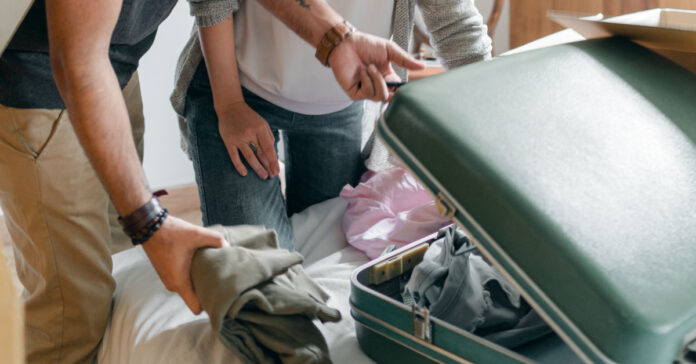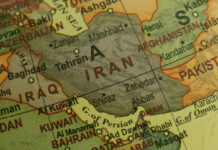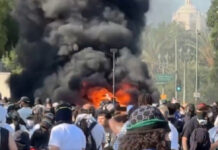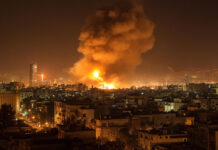With the war in Israel and the possibility it could spread, I reached out to different groups of people who plan to bug out to our place. My plan was to get them thinking and remind them it is better to bugout a few days early than a few hours late. All were aware of the Hamas attack in Israel, but only one was worried about what it might lead to. I planted a bug in the ear of the others and suggested they update their bugout bags and are sure to include winter clothes since it is getting colder here.
The plan is for them to bug out here if the U.S. goes to war with Iran or if someone uses nuclear weapons anywhere in the world, although I suspect that in the former case some will not bugout right away. This will be different than the worst-case scenario because it is bugging out as a precaution, not because the sh*t has already hit the fan.
Bugging out in anticipation of a disaster will be easier that bugging out after a disaster. For example, we expect to have electricity and the stores will be open. We can cook in our electric oven and stove top and won’t have to tap into our survival supplies right away. People with jobs may have to work from our dining room table, which adds a complication, but it will be a nice test run for a SHTF bug out.
What to Bring?
I have a full page listing what we recommend people bring. Given that the idea that this is a precautionary bugout, I revised it to include modern devices like laptops. If things remain quiet, our bugging out friends and family will have the opportunity to come here, spend a few days, and then make a trip home to bring more supplies. Here’s a short version of what is on the list:
- Clothing and extra footwear. Emphasis on winter gear and rugged boots, including hiking and work boots.
- Warm bedding and pillows, including sheets, blow-up mattresses, and sleeping bags. We expect to have more people than beds.
- Personal medicines and hygiene items. If someone likes a specific brand of shampoo or toothpaste, they better bring it. Eyeglasses, contacts and contact solution is also important.
- Any food is welcome, but shelf-stable food is best. Folks should check with us before bringing the contents of their refrigerator.
- Weapons, ammo, and gear with a reminder of the specific guns and calibers on which we standardized. This also includes tactical gear and hunting and trapping equipment.
- Tools for harvesting firewood, from chainsaws to hand saws, axes and mauls.
The list goes on and includes lighting, radios and other electronics, camping equipment, books and games, etc. One family may bring their side-by-side. Another is a beekeeper, so they can bring their bee suits and tools.
Pre-positioning Supplies
I suggested one serious prepper to go through his gear and get items ready to be loaded quickly into the truck. If he has 20 guns, for example, pick the four or five he wants to bring. If he has 30,000 rounds of ammo, decided what comes and what stays. He also hides his buckets of food in an inaccessible location. It might be time to pull them out and sort through them. You don’t want to pack in a rush and then end up with seven buckets of oatmeal and no rice or wheat because you just grabbed what was at the front of your stash. We have the time, so let put it to good use.
We also discussed pre-packing a trailer, an idea we both liked. I suggested he unbolt the hitch and lock it in his gun safe where no one could access it. That would prevent someone else from stealing the loaded trailer. If there is nowhere for the trailer hitch ball to go, you can’t drive off with the trailer.
Also, if he packs the cargo trailer with items that can handle cold temperatures, he could drive it up here and park it in our driveway. If this all blows over in two or four months, he could just drive it home again. No harm done.
Another family has a fifth wheel RV. It won’t go up our road and we don’t have a level place to park it, but imagine if they loaded it with prepping supplies and then parked it at one of the local storage yards. That would put their gear ten miles away from us instead of hundreds of miles.
What to Do?
Imagine our household of two suddenly grows to eight or more. What will we do with them all? Is my wife expected to cook and clean for everyone? Of course not. We will assign people roles and responsibilities, and cooking and cleaning will become a shared activity. We may have to assign days in which to use the washing machine and maybe stagger shower times to avoid running low on water. We may also encourage the use of what I will euphemistically call “outdoor plumbing” to avoid over-taxing the septic system.
Having these able bodies on hand will be an opportunity to get some prepping-related work done while we still recharge the batteries in our power tools and run to town to fill gas cans.
Job one will be to improve fighting positions, which will entail digging and dirt moving. It will also include scouting the area, pointing out the positions of our caches, and creating more ammo caches.
Job two will be cutting and splitting more firewood because in my mind you can never have too much firewood. Since there will be pickup trucks and possibly a side-by-side, we can start with getting wood from the more distant areas of the property, leaving the dead trees closer to the house for when gasoline is in short supply.
Job three will be improving and expanding the garden. This can be as simple as gathering and composting leaves to as involved as building more raised beds. We can also buy more dirt which can be used to absorb fallout if nuclear bombs are used/
Job four might be building an outdoor kitchen that uses firewood so that if we end up in a world without electricity, we will have a couple of masonry volcano stoves and a wood-fired pizza oven ready to go. That will allow us to save our Coleman fuel and propane for true emergencies.
It will be good training, good team building, and a good test for how we can work together. And yes, it will help us be even more prepared.
Assessing
A week into the bugout, we will need to make an assessment. We will need to ask questions such as:
- Are the reasons they bugged out still valid?
- Does it make sense for people to stay here or are they comfortable going home?
- For those working remotely, are they under pressure to go to the office, or can they stay longer?
- If people go home, do they leave some supplies here?
- What do people wish they had with them that they forgot? Is it worth going home to get it or perhaps buying it locally?
- Is everyone getting along? Could this arrangement work if it was for months or years instead of a week?
- What do we need to change to address any sore points and make things work better?
- Are the introverts in the group getting enough alone time?
- Do people have enough privacy?
- Are the sleeping arrangements working?
- Is our water supply holding up?
If the danger has not increased, I expect some people would go home for a night or two and then return with more gear. It is also possible they will accept the “new normal” and stay home, knowing they can bug out again if necessary.
Updating Your Plans
If you plan to bug out, this might be a good time to update your plans. Instead of planning for the end of the world as we know it, or TEOTWAWKI, plan for disruption. Plan for terrorism and protests. Plan for sleeper cells and random acts of violence. Think about surviving power outages caused not by an EMP, but by physical attacks at local power transfer stations.
Plan also for our government to tighten down on your ability to move about the country, or even your town, and to run into road blocks where you have to “show your papers” and hope you don’t look like a terrorist. Expect more facial recognition and men and women armed with M4s on subway stations, train platforms, and even highway rest stops. In short, plan to lose freedoms.
It might be like the early days of COVID-19, where travel restrictions and say-home orders are “for your own safety” and when curfews are “for your own good.” Expect there to be Karens who will report you from minute infractions and over-eager cops who care nothing for your constitutional rights. Imagine having to deal with well-meaning people who take “if you see something, say something” far too seriously and call in reports on you because you carry a gun for self-defense.
Get out of the City
Consider what your reaction will be if they try to impose restrictions again, not to stop a virus but to stop terrorists or reduce the use of oil we need for the war effort. If we go on a war footing, they’ll force factories to make weapons instead of cars and other consumer goods. That could cause supply chain issues, but don’t worry, it’s for your own good; just ask those kids they just drafted.
Last but not least, remember how many people left the city when they locked us down during the pandemic? Think about the people arrested for surfing, walking their dog, or attending church. Are you ready to return to that era? If you aren’t ready to move to Florida, consider bugging out to your retreat or booking a long-term stay at an Airbnb somewhere well outside the city limits. Heck, with Starlink now covering the entire U.S., you really can work from anywhere.
Whether American soldiers fire a shot or not, war in the Middle East will change many things, and not all those changes will be positive. We could see more supply chain disruptions, more rising gas prices and inflation, less food and goods on the shelves. You need to be ready for issues like that and for the possibility of nuclear war.
Video of the Day
On Thursday, I warned you to buy ammo because when we went to war in Iraq, all the production of Lake City ammo went to the military, causing a shortage of .223/5.56 ammo and other calibers in the civilian market. Well, it has happened again, as you can see in the video below.
Might be your last chance to stock up before stores implement purchasing limits.







